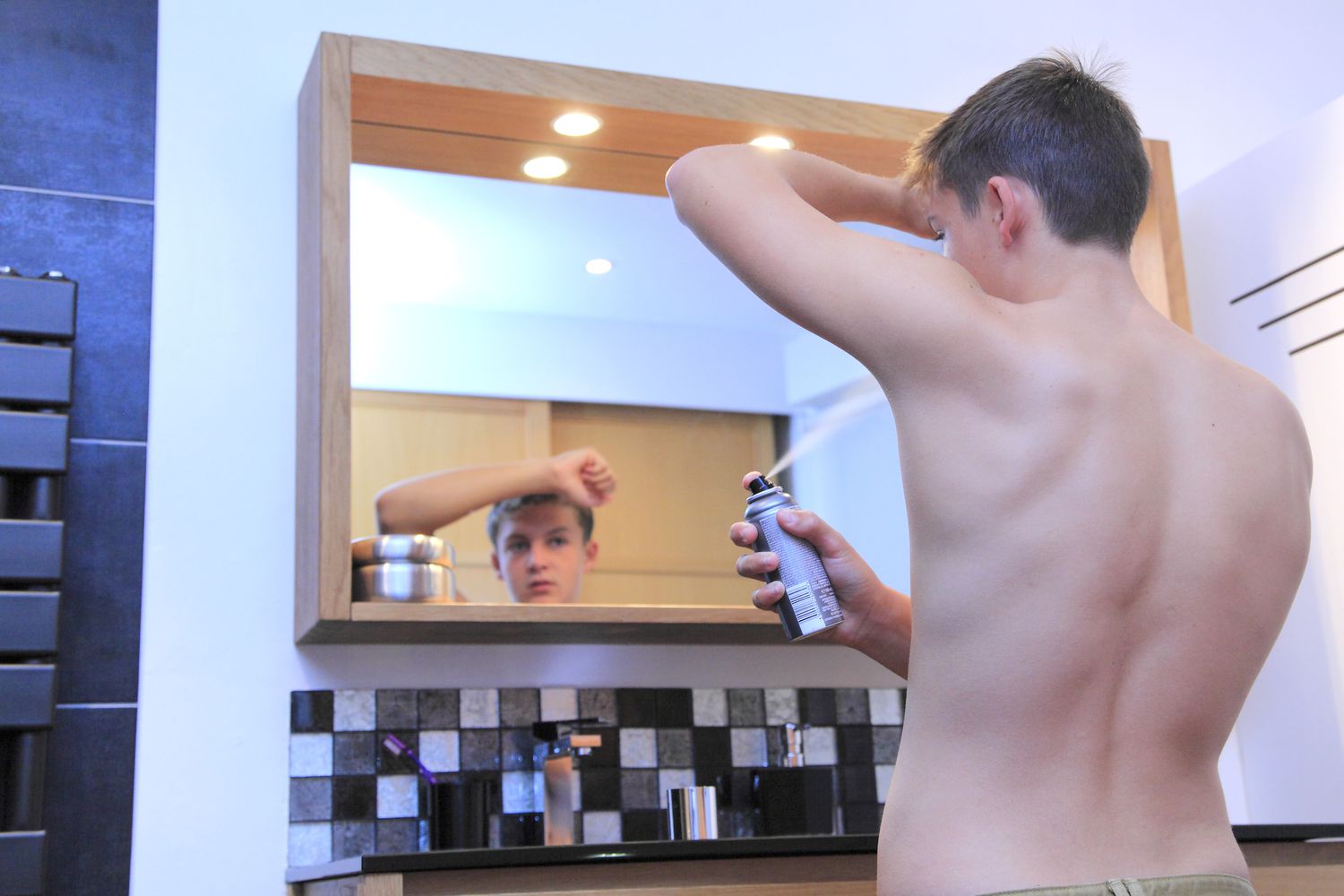When Do Guys Go Through Puberty?
Puberty starts at different times for different people. The timing of puberty depends mainly on a person’s genes, which means it is inherited from your parents. Here is some info on timing:
- Some guys will start going through puberty as early as 10, and others may not show signs of starting puberty until 14 or 15.
- Most guys will begin to see some growth of testicles by age 12, which is generally the first sign that puberty has started.
- Once puberty starts, it generally lasts about 2-5 years.
Some additional factors can affect when puberty starts. Poor nutrition can negatively impact puberty and certain medical conditions such as Crohn’s disease or sickle cell disease.
If there are no signs of puberty by age 14, it is recommended to check in with a healthcare provider about it.

What Happens During Puberty?
- The first body change is generally the growth of the testicles. The skin of the scrotum will become thinner, and the testicles hang lower. Later on, pubic hair begins to develop, and the penis gets more extensive.
- Hair begins to grow under your arms, and later on, hair may grow on the face, arms, legs, and chest.
- The body grows taller and more muscular.
- The voice deepens, and some voice cracking might even be noticed during this time.
- Body odor may become more of an issue, making daily showers and deodorants more needed.
- Acne can develop or worsen during puberty.
- Because of the hormonal changes, some people deal with emotional ups and downs during puberty – feeling sadder or angrier and not even knowing why. Remember that puberty does not account for all teens' emotional issues. If negative feelings are frequent, intense, or interfere in any part of your life, you should check with a health professional about it.
I have pubic hair? Is there something wrong with me?
The fact that you have pubic hair, a little facial hair, and armpit hair means that you have started puberty. Hormones from your adrenal and pituitary glands have triggered this new hair growth, a normal part of puberty. While testicle growth tends to be one of the first signs of puberty, there are certainly guys out there who are growing normally and healthy and may experience body changes in a different order than the next person. If, at 15, you had absolutely no signs of puberty, there might be more cause for concern – but the fact that you do have definite signs of puberty in terms of the body hair is a good indication that there is probably nothing to worry about. Puberty can take between 2 and 5 years to be completed, and each person will go at their own pace with these changes – so try not to be too stressed about it.
Remember that we cannot give any definitive diagnoses over the web, so if you are truly concerned about this and want to put your mind at ease, check in with your doctor soon so you won’t continue to stress over it. And at the very least, it is worth mentioning to your doctor at your next visit so he/she can confirm that there are no underlying medical issues.

Dealing with puberty as a male teen.
Puberty is a natural process all boys go through, but it can be a challenging time filled with changes and uncertainty. As a male teen going through puberty, there are several things you can do to cope with the physical, emotional, and social changes that come with this developmental stage.
One of the most important things you can do is to educate yourself about what's happening to your body. Learn about the physical changes that are taking place, such as the growth of facial and body hair, changes in your voice, and the development of muscles. Knowing what to expect can help you feel more prepared and less anxious about these changes.
It's also essential to take care of your body during puberty. This means eating a healthy diet, exercising regularly, and practicing good hygiene. Caring for yourself can help you feel more confident and comfortable in your skin.
Emotionally, puberty can be a rollercoaster. Hormonal changes can cause mood swings, irritability, and even depression. It's essential to take care of your mental health by seeking support from friends, family, or a mental health professional if needed. Talking about your feelings can help you process what you're going through and feel less alone.
Finally, social changes during puberty can be challenging as well. You may feel pressure to fit in with your peers, or you may be experiencing new attractions and relationships. Staying true to yourself and your values is essential, even if that means standing out. Building healthy relationships based on mutual respect and communication can help you navigate these changes more easily.
In conclusion, going through puberty as a male teen can be challenging, but it's also a natural part of growing up. By educating yourself, taking care of your body and mind, and staying true to yourself, you can cope with the changes and challenges of puberty and emerge as a healthy, confident, and resilient young adult. Remember, you're not alone - many others are going through the same thing, and resources are available to help you navigate this critical developmental stage.